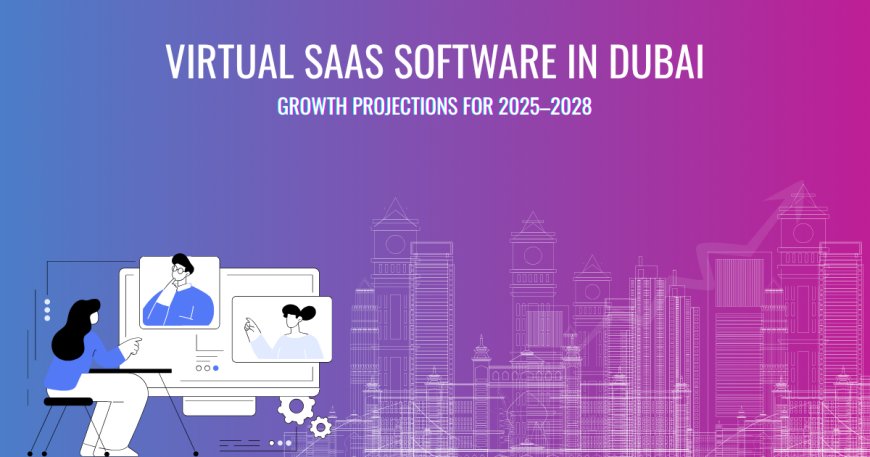Virtual SaaS Software in Dubai: Growth Projections for 2025–2028
Discover how Dubai's SaaS market is set to grow by 2028 with AI, VR, and blockchain driving innovation across tourism, retail, and public services.

Dubai’s virtual SaaS (Software as a Service) ecosystem is poised for transformative growth between 2025 and 2028, driven by aggressive digitalization policies, sector-specific innovation, and robust market demand.
The emirate’s strategic focus on becoming a global tech hub will see SaaS platforms become central to business operations across tourism, events, retail, and public services. Below are key predictions shaping this evolution.
Market Growth and Economic Impact
- Explosive Market Expansion: The UAE SaaS market is projected to grow at a 27.93% CAGR from 2023–2029, reaching $30.52 billion by 2029 (equivalent to AED 112.08 billion).
By 2028, Dubai will account for over 40% of this market, fueled by cloud migration (51% of IT spending shifting to cloud solutions by 2025).
- Startup-Driven Innovation: Dubai’s startup ecosystem-with 5,600+ new registrations in Q2 2024 alone-will prioritize custom SaaS solutions, leveraging AI, blockchain, and IoT for scalable applications. Monetization via premium subscriptions, ads, and fintech integrations will accelerate.
Technology Integration Trends
- AI and Generative AI: By 2028, 93% of enterprises will embed generative AI into SaaS platforms for personalized user experiences, fraud detection, and automated decision-making.
- Immersive Technologies: VR/AR adoption will surge, with the global VR market hitting $92.31 billion by 2027. Dubai’s tourism and events sectors will use these tools for virtual property tours, Virtual conferences, and interactive retail “try-ons”.
- Blockchain and Edge Computing: Government-backed blockchain integration will enhance SaaS security for transactions and supply chains. Edge computing will enable real-time data processing for IoT devices in smart city infrastructure, reducing latency by 50%.
Sector-Specific Adoption
- Events and Tourism: Virtual SaaS platforms will power 70% of hybrid events by 2027, featuring 3D venues and AI-driven networking. VR-enhanced visitor experiences will become standard at attractions like the Dubai Museum.
- Retail and E-commerce: Startups will deploy SaaS for AR-powered virtual try-ons and hyper-personalized shopping, boosting online sales by 30% annually.
- Public Services: Initiatives like Smart Dubai will integrate SaaS with IoT for energy management (e.g., DEWA’s smart grid) and AI for healthcare diagnostics.
Drivers and Challenges
Growth Catalysts:
- Government policies (100% foreign ownership, free zones like Dubai Internet City).
- 5G rollout enabling real-time SaaS applications.
- Demand for cost-efficient, scalable solutions post-pandemic.
Key Challenges:
- Cybersecurity threats from remote work models.
- Balancing hybrid functionality with user engagement.
- Regulatory compliance across sectors.
Conclusion
Dubai’s virtual SaaS landscape will see unprecedented expansion by 2028, characterized by AI-driven personalization, immersive experiences, and cross-sector integration. Supported by visionary government initiatives and a thriving startup culture, SaaS platforms will underpin Dubai’s transformation into a fully connected smart city. Challenges like data security and technical complexity will spur innovation, ensuring Dubai remains at the forefront of global SaaS adoption.






































































